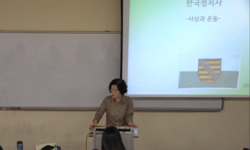This study scrutinizes Japanese prohibition expressions, specifically ‘するな’ and ‘しないで’, concentrating on the speaker's evaluation. By examining vital sentence elements, this study categorizes these expressions into three types: p...
http://chineseinput.net/에서 pinyin(병음)방식으로 중국어를 변환할 수 있습니다.
변환된 중국어를 복사하여 사용하시면 됩니다.
- 中文 을 입력하시려면 zhongwen을 입력하시고 space를누르시면됩니다.
- 北京 을 입력하시려면 beijing을 입력하시고 space를 누르시면 됩니다.

금지요구문에 나타나는 화자의 평가와 구문적 특징에 관한 일고찰 ― 「するな」 「しないで」를 중심으로 ― = A Study on the Speaker's Evaluation and Syntactic Characteristics in Prohibition Expressions: Centered on ‘SURUNA(するな)’ and ‘SHINAIDE(しないで)’
한글로보기https://www.riss.kr/link?id=A108741565
- 저자
- 발행기관
- 학술지명
- 권호사항
-
발행연도
2023
-
작성언어
-
-
주제어
금지요구 ; 화자의 평가 ; 화자의 태도 ; 구문적 특징 ; 실현성 ; prohibition expressions ; speaker evaluation ; speaker ; s attitude ; syntactic characteristics ; realization
-
KDC
700
-
등재정보
KCI등재
-
자료형태
학술저널
-
수록면
53-72(20쪽)
- 제공처
-
0
상세조회 -
0
다운로드
부가정보
다국어 초록 (Multilingual Abstract)
This study scrutinizes Japanese prohibition expressions, specifically ‘するな’ and ‘しないで’, concentrating on the speaker's evaluation. By examining vital sentence elements, this study categorizes these expressions into three types: preventive, prohibiting potential situations; prohibitive, halting ongoing events; and atypical, encompassing completed situations or those beyond the listener's control.
Analysis highlights the speaker's negative evaluation or attitude through syntactic characteristics. This study investigates sentence components such as noun-modifying, adverbial, and predicate components, which together concretize the speaker's prohibition request. Each serves a purpose: noun-modifying components provide detailed content of prohibited actions; adverbial components elucidate the prohibition manner; and predicate components denote the central action of prohibition.
The demonstrative expressions of the そ·あ series are commonly used in prohibitive and atypical prohibition requests to refer to completed actions. The appearance of noun-modifying components varies, with speaker's criticism or dissatisfaction often focused on completed actions. Atypical prohibition requests, typically used in specific contexts, inherently convey pragmatic meaning. The study affirms prohibition expressions transcend merely restricting actions, encapsulating and communicating the speaker's evaluative attitude.
동일학술지(권/호) 다른 논문
-
日本語教育の新しい潮流と教師の質の向上 ― 日本における新たな取り組みを軸として ―
- 한국일어교육학회
- 嶋田和子 ( Shimada¸ Kazuko )
- 2023
- KCI등재
-
GAFAMが制覇しているDX、AI時代に求められるクリエイティブ日本語教育の提案 ― 「AIと外語学習」講座授業での実践成果を例に ―
- 한국일어교육학회
- 曾秋桂 ( Tseng¸ Chiu-kuei )
- 2023
- KCI등재
-
- 한국일어교육학회
- 陳多友 ( Chen¸ Duo-you )
- 2023
- KCI등재
-
「してもらう」文の文タイプの移行について ― 受益性を表さないタイプを中心に ―
- 한국일어교육학회
- 權勝林 ( Kwon¸ Seung-lim )
- 2023
- KCI등재




 KISS
KISS





